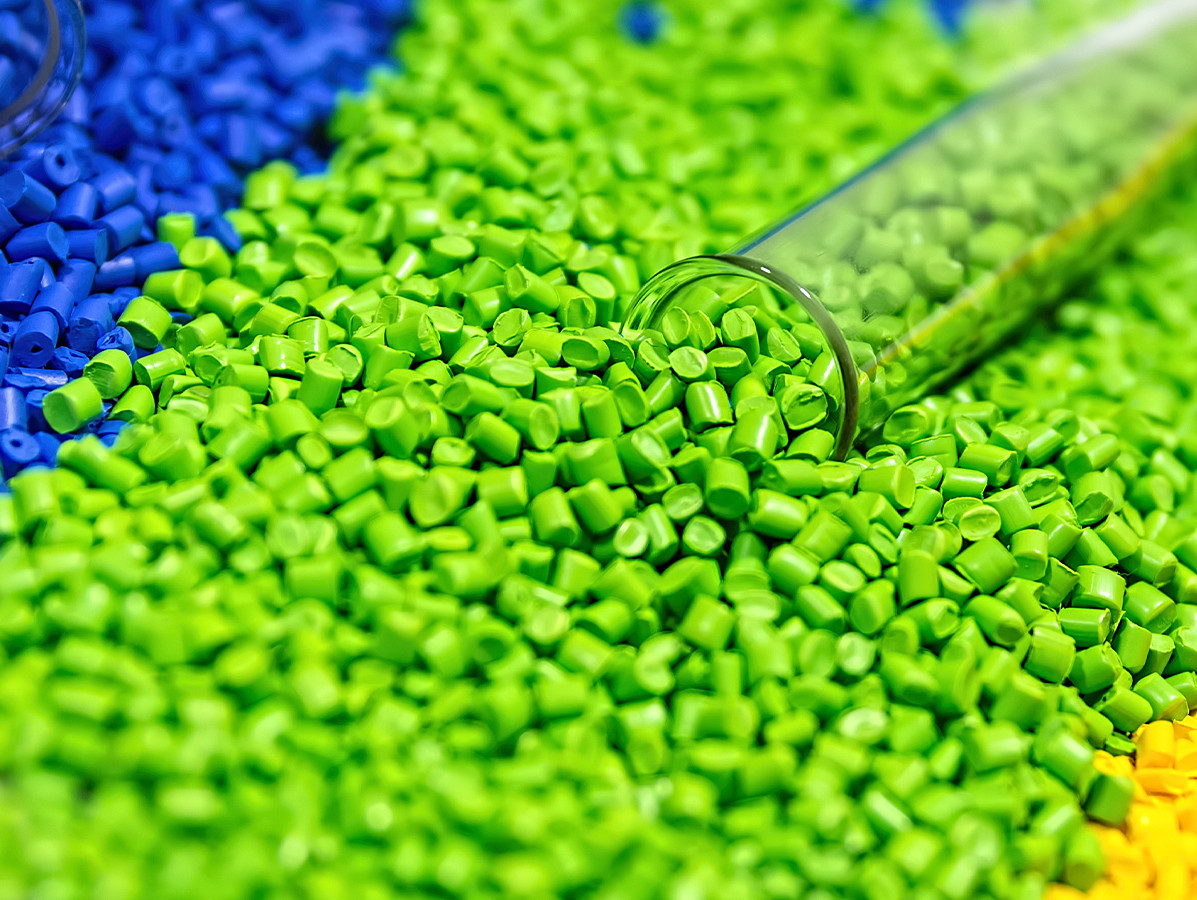
Rigid plastic is very difficult to recycle. At least, that was the case until the discovery of vitrimers. Researchers of the Biomolecular Sciences cluster have laid the foundation for this new type of sustainable plastic, which is hard when possible and soft when needed.
In existing hard plastics, the smallest building blocks, the molecules, consist of long strands that are interlinked with strong connecting links. These links remain in place even under high temperatures. This makes it difficult to recycle hard plastic because it cannot be transformed. Five years ago, Wageningen chemists decided to continue working on vitrimers, a French invention that combines the advantages of hard and soft plastics.
Simon van Hurne and Sybren Schoustra of the Organic Chemistry group work on this new sustainable plastic. ‘You may see a vitrimer as the net in a soccer goal that has been knotted together’, says Schoustra. ‘That network can be activated, which unties the knots and enables you to re-tie them elsewhere.’ The vitrimer is activated through heat. ‘Preferably, you would have something that is hard at room temperature and becomes malleable at 150 degrees Celsius. Because you don’t want your mug to collapse as soon as you pour hot coffee in it’, says Schoustra.
There is hope that products made from this new plastic will be recycled and don’t end up in the environment. Should this happen anyway, a new type of biobased plastic developed by Julian Engelhardt may offer a solution in the future. Engelhardt works for Wageningen Food and Biobased Research and the Organic Chemistry and Soft Matter group. The plastics he tries to develop are called saloplastics. This material disintegrates into harmless molecules in salt water. ‘It can be broken down in a few days, weeks or months’, says Engelhardt. In contrast, other plastics can float around in the ocean for dozens, or even hundreds, of years,
Photo: © Mr_Mrs_Marcha/Shutterstock.com
Source: Wageningen University & Research